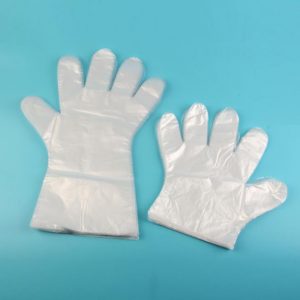The choice between nitrile gloves and latex gloves depends on the specific requirements of the task and any user preferences or considerations. Both types of gloves have their advantages and disadvantages, and the “better” option varies based on the context. Here’s a comparison of nitrile gloves and latex gloves to help you make an informed decision:
Nitrile Gloves:
- Chemical Resistance: Nitrile gloves offer superior chemical resistance compared to latex gloves. They are more resistant to oils, greases, solvents, and certain acids, making them ideal for tasks involving potentially hazardous chemicals.
- Latex-Free: Nitrile gloves are suitable for individuals with latex allergies or sensitivities, as they do not contain natural rubber latex proteins that can trigger allergic reactions.
- Puncture Resistance: Nitrile gloves are generally more puncture-resistant than latex gloves, providing better protection when handling sharp objects or materials.
- Durability: Nitrile gloves are known for their durability and longevity, making them suitable for extended use in various industries.
- Tactile Sensitivity: While not as sensitive as latex gloves, nitrile gloves still offer decent tactile sensitivity, allowing users to perform delicate tasks.
- Comfortable Fit: Nitrile gloves have good elasticity, providing a comfortable fit and reducing hand fatigue during prolonged use.
Latex Gloves:
- Superior Tactile Sensitivity: Latex gloves provide excellent tactile sensitivity, making them ideal for tasks that require precision and fine motor skills, such as medical procedures.
- Biodegradability: Latex gloves are more biodegradable compared to nitrile gloves, which can be an advantage for environmentally conscious users.
- Elasticity: Latex gloves have better stretch and elasticity compared to nitrile gloves, ensuring a snug fit and ease of donning and doffing.
- Affordability: Latex gloves are generally more cost-effective than nitrile gloves, making them a budget-friendly option for certain applications.
Considerations:
- Allergies: Latex gloves can cause allergic reactions in some individuals, while nitrile gloves are latex-free and suitable for those with latex allergies.
- Chemical Exposure: If the task involves handling chemicals, nitrile gloves might be the better choice due to their superior chemical resistance.
- Medical Settings: Latex gloves are often preferred in medical settings due to their excellent tactile sensitivity and conforming fit, essential for medical procedures.
In summary, nitrile gloves are generally considered more versatile and offer better chemical resistance and puncture resistance compared to latex gloves. They are an excellent choice for tasks involving potential chemical exposure and for individuals with latex allergies. On the other hand, latex gloves provide superior tactile sensitivity and are commonly used in medical settings. When making a decision, consider the specific requirements of your task, the potential for latex allergies, and any environmental concerns related to biodegradability.
















